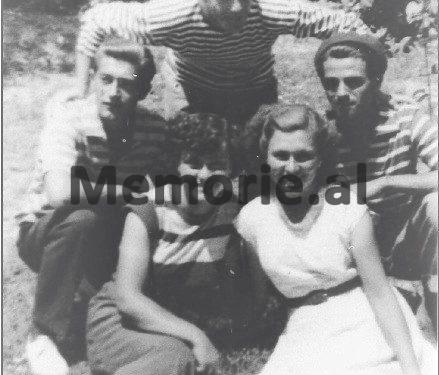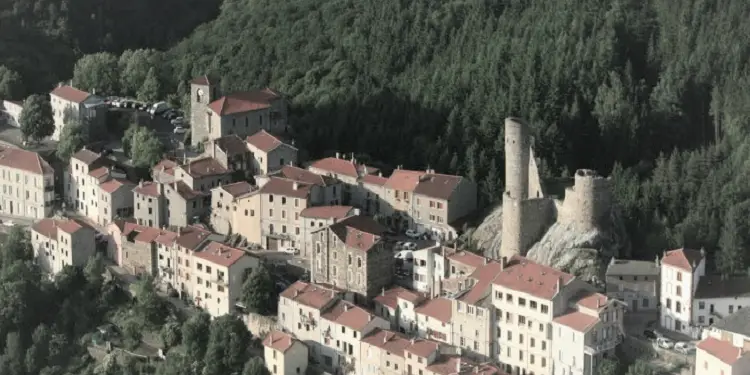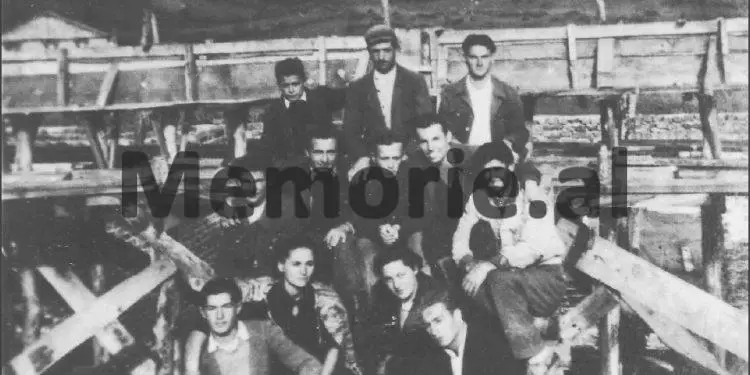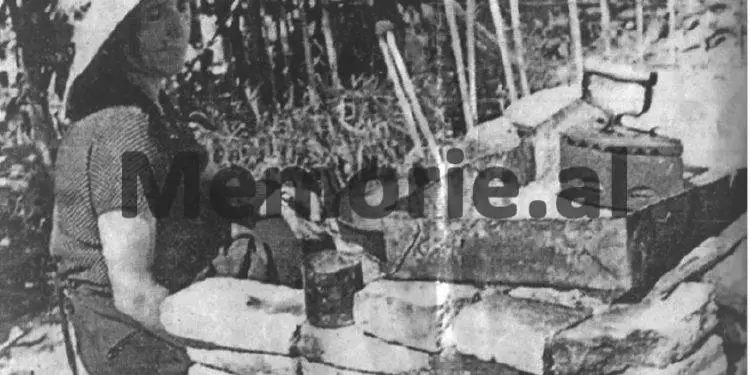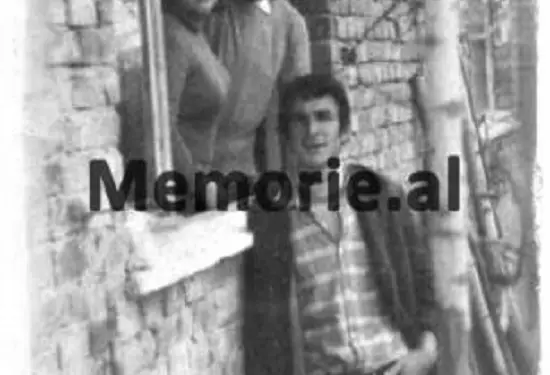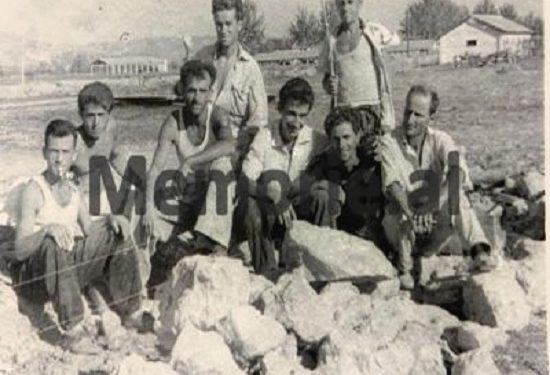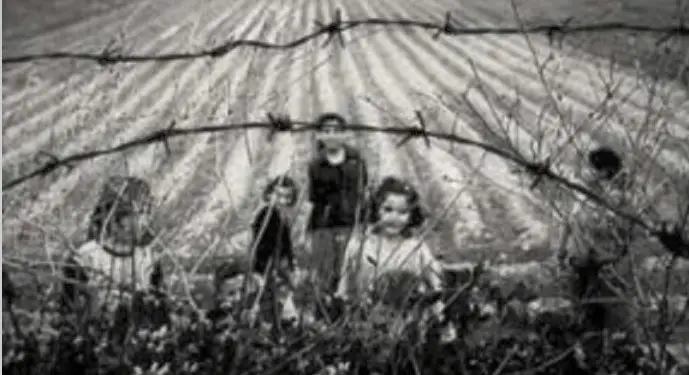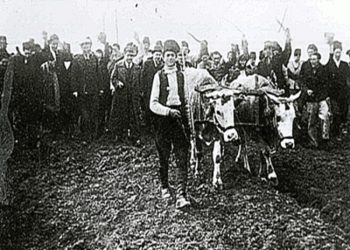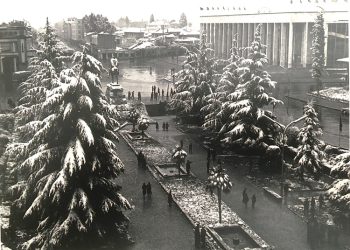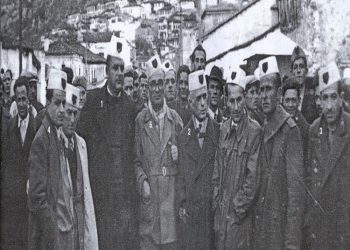By Eugene Merlika
A HISTORY OF INTEGRATION
Memorie.al / Rochetaillèe, is a small town, seven km. south of Saint-Etienne, one of the cities of Central-Eastern France. Located in a beautiful green environment, between hills covered with centuries-old trees, as is almost everywhere in the landscape of France, it looks like a vacation spot.
From this small town, a few years ago, a young man left to study in the mathematics department at the University of Strasbourg. There he met a girl, who was a foreigner and came from far away, from Albania by the Adriatic. The girl’s name was Aida; she was named after a heroine of a Verdi opera. The case had brought him to that famous city of France, where important European institutions in the union, such as the European Parliament or the Council of Europe, had their centers.
The girl, who graduated in Law at the University of Tirana, was starting a new life here, in the heart of Carolingian Europe, as the guardian of a child whose parents were officials of European institutions. Besides work, he would study. The first years presented their own difficulties. The girl had learned Italian, English in Albania and in the last few months she had also studied French, to prepare for the new life that was opening up for her away from her country. In Strasbourg, he perfected these languages by doing post-graduate studies and obtaining the relevant certificates.
In addition to studying and working with children in the families of the French city, Aida also got to know love, which she had surprisingly missed during her years of studies in Tirana. Lionel filled in her imagination the figure of the friend of life. Pure love was born and grew up in a free environment, outside the framework of prejudices of any kind, finding support in the family of the boy in Rochetaillèe and the girl in Lushnje in the internment camps where Aida had spent her childhood, until the communist regime released them place his successors.
The marriage had two parties: one in Strasbourg after the formalization in the City Hall, organized by the family that, for the first time, employed Aida, and the second in Rochetaillèe, where the real wedding took place, after the religious ceremony in an ancient church. Many guests, friends and colleagues of the organizing families participated in both parties. In Strasbourg, at the party of Aida and Lionel, many families of officials and functionaries of European institutions were invited, which made up the social and friendly circle of the Taylor family. This family did not fail to come to Rochetaillèe, to show their love and gratitude for the girl from Albania, who had given her help in raising Rebecca, their daughter.
In the wedding organized by the groom’s parents, in the ancient town, the bride’s family members were invited and had the opportunity to be present. The father, mother and brother came from Lushnja, the sisters and the uncle’s son from Perugia, where they study at the University of that city, the aunt and her daughters from Milan, bringing as a gift the wedding dress, ordered from one of the specialized houses for this article, while my uncle is from New York where he has been living for 16 years. This was the “Albanian colony” that had brought the modern “Doruntina” to the heart of France, and that represented in that civic environment one of the most civilized and proudest countries for this civilization, Albania, with its traditions, with its history ancient and new, with its culture, but also with its problems.
How much our world, the world of Albanians, has changed in these last fifteen years? Events such as this wedding were unimaginable even by the wildest imagination of any citizen of Albania outside the Bloc and, perhaps even within it, until fifteen years ago. This wedding, like many others of this type in our days, is an example of the connection not only of individuals but also of peoples, nuclei of mixed families, forerunners of common societies, of the institutions of a globalized world. The more these marriages are, the closer we will get to the goal of an open society, the more we will tear down the “Chinese walls” that communism put up to separate us from the “imperialist-revisionist” world!
Since the time of the Kingdom of Zogu, mixed marriages began, mostly with foreign brides who fell in love with Albanian students in Italy, Austria or elsewhere. These foreign women, mostly educated, brought freshness and culture to the families and the Albanian civil society and were factors in its development. But the communist dictatorship, which was capable of imitating only the most negative and blackest phenomena of the foreign world, turned these women into targets of its cruel violence and treated their sons as second-class citizens, like meat foreigners in the body of that society. The same phenomenon was repeated with the women who came from the Eastern Countries, who were forced in the overwhelming majority of cases, to return to where they came from, or to endure the “racial” difference that their husbands’ party exercised over them.
This is one of the many aspects of that criminal phenomenon of the communist regime of Enver Hoxha, which saw in every foreigner a “danger” for socialism and which turned Albania from a classic country of hospitality into a similar Soveto of Europe with Nazi camps. It was also an expression of the awareness of the inferiority of a leading class intellectually incapable of dealing with foreign culture, which was closed like a hedgehog in its world of ignorance, covering this closure with barren arguments of ideological “purity” or, of pseudo “national pride”.
The French are usually cold to foreigners and have difficulty making friends with them. That evening of celebration, which lasted until the early hours of the morning, rejected the taboo of their coldness. They were very cordial with the people of the bride, they communicated with them in their language or in English, and they tried to know the problems of their country. In free conversations, they also exchanged opinions on Europe, who’s Constitution, a short time ago, they had rejected, but they called integration as the best tool to solve Albania’s countless problems. They listened with pleasure to the Albanian melodies that blared from the loudspeaker and they all participated in the bachelor’s handkerchief burning dance, as well as in other dances.
Of course, this behavior mainly bore the stamp of respect and consideration for the new bride, and this was her merit, but it also showed the opinion they had about the Albanians. This opinion, not only the French, but also the Italians, the Germans and other peoples of Europe, when they were in direct contact with the majority of Albanian immigrants, they formed not depending on the criminal episodes highlighted by the press , in the address of the Albanian bandits, but thanks to their acquaintances. This opinion, created among the citizens of Europe thanks to the honest behavior of Albanian immigrants, is the greatest service that the latter do to the abandoned homeland.
If the Eurobarometer polls put Albania in the last place of preference in Europe, this fact is not due to the prejudice for the proverbial backwardness of the Albanians, but to the black image that the political class has been projecting in Europe and the world for sixty years. It is an image that in recent years, when the confrontation with the world has become more intense, has become more obscured. A Prime Minister in a taped conversation uses the dirtiest vocabulary that would put any pub-goer to shame, goes to represent the Country at the highest level at a world ceremony in the Vatican, fights over his assigned seat at another international activity, among the most popular, let alone paying a bill of thousands of dollars, becoming a problem in the foreign press..!
Representatives of the Assembly or other institutions show up in Strasbourg or Brussels, swearing at each other and stand out for their arrogance and ignorance…! Party leaders who, even before the ballot boxes are closed, improvise press conferences to “communicate” the results…??!! A former minister of culture, in a televised conversation with a colleague from the opposing party, is only able to unleash verbal violence without any convincing argument…! A Chairman of the Central Election Commission in a TV show cannot contain his anger and insults his colleague with the word “servant of Berisha”…! A caste of people who run the State at different levels, out of nowhere today are holders of fabulous assets, thanks to the illegality they have raised in the system…!
These are just a few examples and not the worst that complete the framework of the image of those who lead the State of Albanians. Ordinary Albanians, those outside and inside Albania, who sweat every day to advance their families and their lives honestly, are not recognized in this image. He likens to him that a small minority of compatriots, the contingent of crime, frees from the black chronicles throughout Europe and beyond.
That silent majority, those women and men who with many sacrifices, but with equal dignity, are facing the challenge of integration into European or North American societies, those boys and girls, pupils and students, who with satisfactory results, but even with a lot of effort, they are preparing to successfully enter a market where the competition is merciless, they cannot be equated with those ladies and gentlemen who today represent the official Albania. There is a gap between them that is getting wider every day.
To close the gap there is only one way, for the political ruling class to change its face. This does not mean to carry out a successful cosmetic intervention, but to undergo a radical selection to give the country the right image. Will the new leadership group of Albania have the desire, the will, the opportunity and the ability to carry out this operation? It will be very difficult, for a complex of motives, but not impossible. It will take the right time, but the trend will be seen from the beginning.
If he achieves this goal, he will not only have done the task that the vote of the citizens put on his shoulders, he will have established an ideal, formulated more than a century ago by men who loved their country with their soul poor, who melted for his progress and not for the bags of gold. Will there be great-grandchildren who will have that ideal at heart? Time, this strict and impartial judge will give her answer and will not delay. The rhythms of the era are accelerated and the decisions irrevocable.
History has reminded us that movements in the field of the global world must be quick and measured. We wish and hope they are the right ones, otherwise… goodbye Albania…! Memorie.al
August 2005




